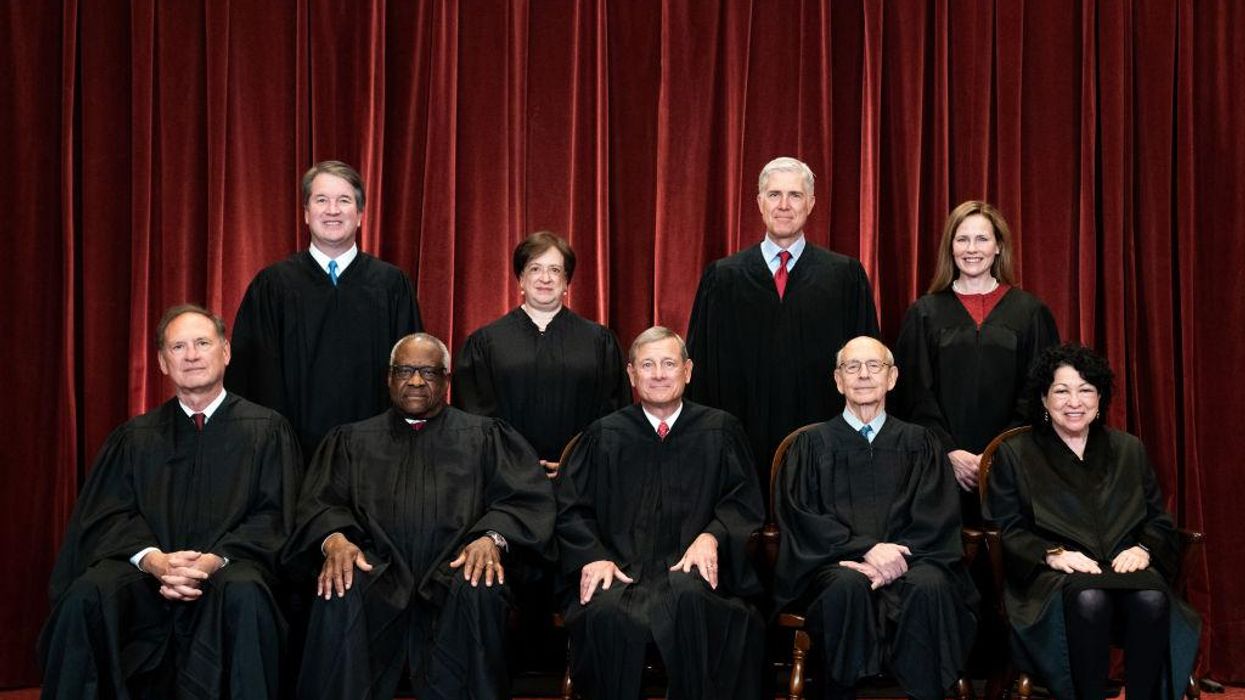
Erin Schaff-Pool/Getty Images

Supreme Court Marshal Gail A. Curley said in a statement on Friday that she spoke to the justices amid the investigation into a draft opinion leak, but she never requested that they sign sworn affidavits.
"During the course of the investigation, I spoke with each of the Justices, several on multiple occasions. The Justices actively cooperated in this iterative process, asking questions and answering mine. I followed up on all credible leads, none of which implicated the Justices or their spouses. On this basis, I did not believe that it was necessary to ask the Justices to sign sworn affidavits," Curley said in the statement.
The marshal's report on the investigation noted that the probe failed to uncover who was responsible for the leak of the Dobbs v. Jackson Women's Health Organization draft opinion. In May 2022, Politico published the draft, which revealed that the Supreme Court was poised to strike down the 1973 Roe v. Wade abortion ruling — the court's official opinion released in June 2022 did, in fact, overturnRoe.
The report on the leak investigation stated that "all personnel who had access to the draft opinion signed sworn affidavits affirming they did not disclose the draft opinion nor know anything about who did." The report also noted, "A few of those interviewed admitted to telling their spouses about the draft opinion or vote count, so they annotated their affidavits to that effect."
But the leak remains a mystery, with the report indicating that the investigation did not determine how the Politico obtained the draft.
"At this time, based on a preponderance of the evidence standard, it is not possible to determine the identity of any individual who may have disclosed the document or how the draft opinion ended up with Politico," the report read. "While investigators and the Court’s IT experts cannot absolutely rule out a hack, the evidence to date reveals no suggestion of improper outside access. Investigators also cannot eliminate the possibility that the draft opinion was inadvertently or negligently disclosed – for example, by being left in a public space either inside or outside the building."
Slate senior writer Mark Joseph Stern suggested that the marshal had not furnished a good rationale for choosing not to ask the justices to sign affidavits. "If the marshal was so certain the justices weren't involved with the leak, she could've simply asked them to sign a sworn affidavit saying so, just like everyone else. It would not have been difficult. If she has a good reason for refusing to do so, she has not provided it!" Stern tweeted.
\u201cIf the marshal was so certain the justices weren't involved with the leak, she could've simply asked them to sign a sworn affidavit saying so, just like everyone else. It would not have been difficult. If she has a good reason for refusing to do so, she has not provided it!\u201d— Mark Joseph Stern (@Mark Joseph Stern) 1674250172
"The logic is odd: Curley says she saw no reason to ask the Justices to sign affidavits because there were no credible leads implicating the Justices or their spouses. Were there credible leads implicating all of the Court employees who *were* asked to sign affidavits?" tweeted Steven Mazie, whose Twitter profile indicates that he covers the high court for the Economist and teaches political science.
"Note Curley's use of the phrase 'spoke with.' Her report, in contrast, repeatedly used the terms 'interview' and 'formal interview' to describe her questioning of court staff. Not using those terms here suggests that her conversations with the justices were much more informal," SCOTUSblog editor James Romoser tweeted.
\u201cThat Curley "spoke with" the justices "during" the investigation is unsurprising. But this statement strengthens the inference that the investigators did not scrutinize the justices at the same level as they scrutinized everyone else with access to the draft.\u201d— James Romoser (@James Romoser) 1674251644
Like Blaze News? Bypass the censors, sign up for our newsletters, and get stories like this direct to your inbox. Sign up here!